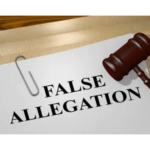Should juries be told about past convictions?

When a person is on trial, the jury is not normally told about their criminal history, if they have one. Similarly, if there is no jury, the judge or magistrate is not permitted to take into account any prior offending when deciding guilt or innocence for the present charge.
The reason behind this is to prevent the ‘fact finder’ – whether that is a magistrate, judge or jury – from being unduly swayed by a person’s past, ensuring that they focus on the evidence relating to the present case. But not everyone is a fan of this important safeguard.
One person who would like to see things change is NSW Solicitor-General Michael Sexton SC. He believes that judges are out-of-touch with the real world – stating that they live: “relatively sheltered lives… making a lot of money and settling in the best parts of town, so it would be unusual to have ever been victims of crime.”
Sexton is of the view that the level of violence in some offences is beyond the imagination of judges, and this leads to judges being too “soft” on defendants.
But Sexton’s views are inconsistent with research into this claim – which has shown time and again that members of the public who are given the same set of circumstances as a judge come back with more lenient sentences.
In any event, Sexton believes that this perception of “softness” is one of the reasons to inform fact-finders about any similar past convictions that a defendant might have.
Current NSW Law
As stated, juries are not normally told of about a defendant’s prior criminal history, and judges are not allowed to take it into account when determining criminal liability. However, a person’s criminal record – or lack thereof – can be highly relevant during the sentencing process; which is when the magistrate or judge decides the appropriate penalty.
There are further exceptions to the rule against being told about prior character. One is where a defendant with a criminal record testifies that they are of good character. For example, if a defendant who is charged with assault testifies that “I would never assault someone” or “I am not a violent person”, then the prosecution can raise evidence of past offences of violence.
Another exception is found in the “tendency rule”, which is contained in section 97 of the Evidence Act 1995. That section says that evidence of person’s past character is not admissible unless:
- The prosecution has given reasonable notice to the defence about producing it;
- The proposed evidence has significant probative value (ie is significantly relevant to the facts in issue), and
- That value substantially outweighs any unfair prejudice that may be caused to the defendant by its admission.
An example of something that could meet this test is evidence of a unique ‘modus operandi’; for instance, evidence that the defendant was previously convicted of a murder where he tied the victim up in an unusual way, when the victim of the present case was also tied up in that way.
In practice, however, it is rare for a defendant’s criminal record to be disclosed to the fact-finder before a finding of guilt.
Back to Mr Sexton…
Sexton believes that any similar prior record that a defendant may have should be disclosed to the jury during at trial, asking:
“Why… should a jury be denied knowledge that an alleged rapist committed another rape six months earlier, subject to appropriate warning from the judge, or that an accused charged with fraud has a string of convictions for dishonesty?”
He asserts that juries are smart enough not to be unduly influenced by such material, and will remain focused upon the evidence at hand.
The UK Approach:
Like NSW, the United Kingdom has systematically abolished or diluted several important defence safeguards, including the right to silence.
Back in 2004, section 101 of the UK Criminal Justice Act was introduced to allow evidence of a defendant’s bad character in seven situations:
- If the prosecution and defence agree that the evidence is admissible;
- If the evidence is admitted by the defendant during cross-examination;
- If the evidence is “important explanatory evidence”
- If the evidence has substantive probative value in relation to an important issue between a defendant and co-defendant;
- If the evidence is to correct a false impression given by the defendant; or
- If the defendant has made an attack on another person’s character.
The section gives prosecutors multiple avenues through which to introduce a defendant’s past convictions, and thereby increase the prospects of a conviction.
UK Home Secretary David Blunkett believes that the legislation is fair, stating that: “Trials should be a search for the truth and juries should be trusted with all the relevant evidence available to help them to reach fair decisions.”
And Tony Blair chimed in by saying that for too long “the scales of justice have been weighted in the defendant’s favour and against the victims.”
Concerns
No doubt that the likes of David Blunkett, Tony Blair and our own Solicitor General will find public support for their tough anti-defendant stance. But what none of these three men point out is the unfairness that such a rule perpetuates.
The job of the fact-finder is to determine whether or not the prosecution has proved beyond reasonable doubt that the defendant is guilty of the offence they are charged with. This comes down to whether the prosecution produces evidence that proves each element, or ingredient, of the offence – not whether the defendant seems like the kind of person who would commit that particular offence.
One of the dangers of the English law is that jurors faced with a defendant who they abhor – such as a person with previous convictions for paedophilia or sexual assault – may feel that the person ‘deserves’ to be convicted, or that they probably did it, regardless of the weight of the evidence before them in respect of the current allegations.
This danger is compounded by the concern that, once a crime has been reported, police may simply round up the ‘usual suspects’, pick one that they think might have done it, put them before a jury and – with their ‘abhorrent’ past crimes revealed to jurors – have a good chance of securing a conviction despite a lack of actual evidence.
This provides an easy way for police to ‘clear’ an investigation, but can result in monumental injustice to the hapless defendant – while at the same time failing to deliver any real justice to the victim, their family or the community as a whole.
The proposed law also undermines two of the most fundamental principles of our justice system – namely, the presumption of innocence and the notion that the prosecution bears the burden of proving guilt or innocence in respect of the specific allegations.
Sadly, simply being charged with an offence is viewed by some as synonymous with guilt – and adding a person’s prior record into the mix is a sure way to ensure that many more innocent people are wrongfully convicted.






